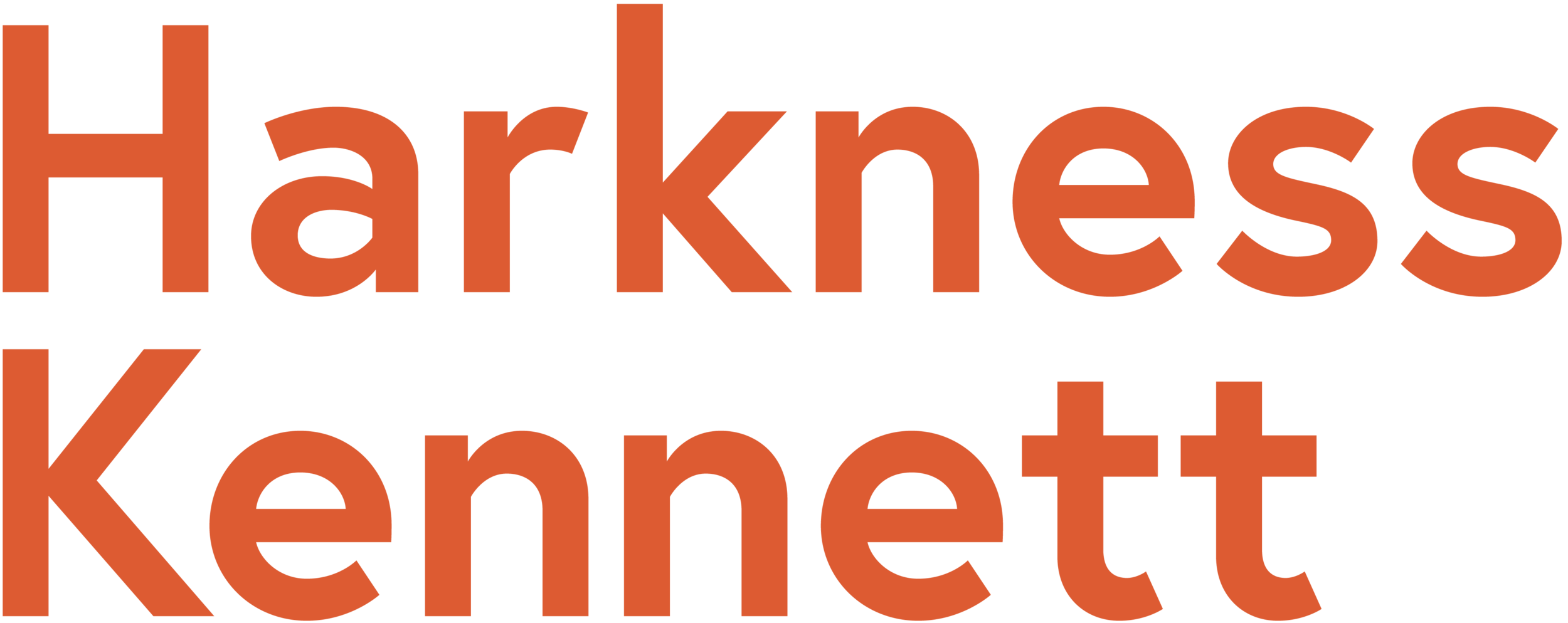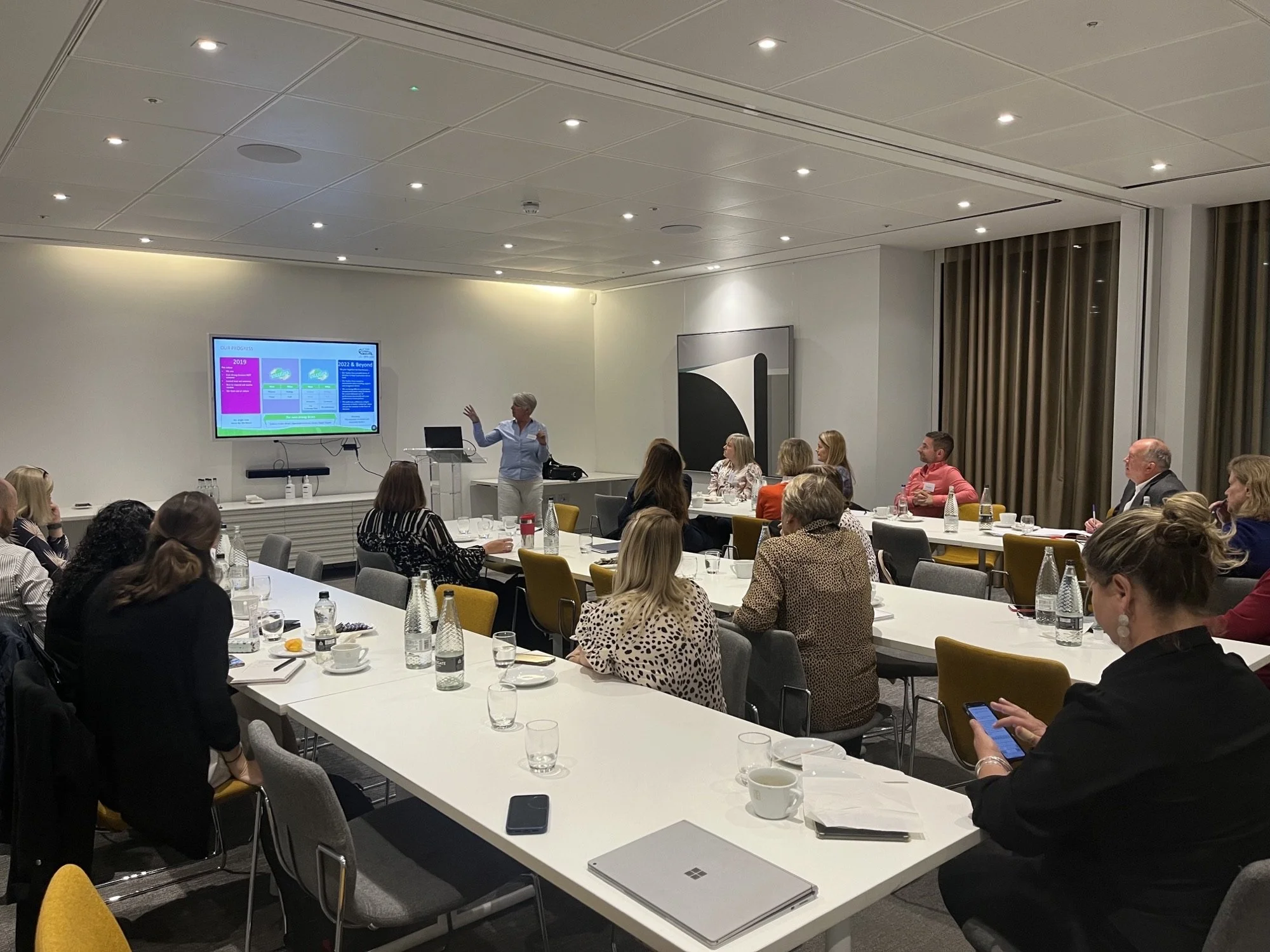Purpose, positivity and practicalities
how communicators are helping organisations move forward
What a year! Arguably the skills of comms pros have never been in more demand, and never have they faced as many challenges. ‘Adapt’ is certainly the buzz word for 2020, and here at HarknessKennett we’re doing just that! This week we brought our popular breakfast networking sessions online. It was so lovely to see some of our community together again and to have the chance to pause and reflect on what this year has taught us as communicators.
We were privileged to be joined by Johanna Lavender, Head of Communications for functions at bp, and Richard Walden, Head of Communications at Heathrow, who shared with us their organisation’s ‘Covid Journey’ and what they have learnt from it.
Johanna explained that bp announced their new corporate ambition in February, and just 2 weeks later with the arrival of Covid-19 were facing a “perfect storm”. Trying to keep up the energy around their ambition to become a net zero company by 2050 or sooner whilst managing the impact of the pandemic meant delivering a huge transformation programme, a back drop of significant financial challenges, and a headcount reduction of 10,000.
With so much flux for their colleagues, the communication function focussed on how they could best support their people and their communities, and keep them up to date on how the business was working to protect itself from the financial impact of the pandemic.
Reflecting on an extremely challenging few months, Johanna talked us through the 3 key areas that have kept colleagues supported and the business moving forwards:
1. Clear messaging
Audience segmentation has been key to bp; they have employees all over the world, some now working from home and others working on rigs, in refineries and in their service stations. They ramped up their focus on values – with safety and well-being at the forefront – and targeted messages for the different audiences. Lead as a crisis response, the team met daily to track issues and messages, constantly replanning and adapting as required.
The team created a ‘bp steps up’ campaign to share internally and on social media what was being done to support communities and colleagues alike, building pride and community spirit. They also adapted and fast tracked the annual employee pulse survey, polling a proportion of employees each week to give regular insight into employee needs.
2. Leadership visibility
With a new CEO who Johanna described as their “secret weapon”, the team were able to capitalise on his authentic, committed approach to the environment and his engaging communications style. A bi-weekly Teams live session has been held for the whole company, with attendance peaking at 16,000. Teams allows questions to be submitted and voted on, and Bernard is happy to take on even the toughest questions. He is also active on Yammer.
The comms team have also provided guidance and tips to line managers on how to listen to and connect with employees whilst working remotely.
3. Employee advocates
To help engage and enthuse bp people, the team created an App enabling them to share videos around the world. The app has supported everything from wellbeing to pride in community works. They’ve also used it to encourage employees to take much needed holiday during lockdown.
LinkedIn Elevate enabled bp employees to talk about what is happening internally and increase their brand ambassadorship by sharing content about their ambitions with their own networks.
Richard Walden followed by explaining that Heathrow is undoubtedly in one of the sectors hit hardest by the pandemic. The impact on aviation has been catastrophic. Heathrow has seen an 82% reduction in passenger numbers, and the financial impact that brings. Their management team has been reduced by half, employee numbers by one third, and the comms team itself by 60%. Back in March the leadership team identified 3 phases: protect the business; win the recovery and build back better. Whilst they had hoped to be in phase 2 by now, as the pandemic continues, the impact on Heathrow continues to be very painful and they remain in phase 1.
During 6 challenging months, there have been 4 key elements of the response from the IC team:
The IC strategy is now much shorter term and is constantly being adapted. Weekly webinars are held by the CEO and Chief People Officer via Teams, and are open to all. The hour-long session provides a 15-minute update on business performance and organisational design changes, allowing for an impressive 45 minutes of Q&A. These sessions have been understandably emotional, and the leadership and communications teams have been recognised by colleagues for their efforts to connect and communicate clearly. Richard commented that this approach has allowed much more direct contact between colleagues and leaders than they’ve managed previously, and has brought about a much better approach in their ‘face to face’ communication. Their CEO is able to engage directly with 1,000-1,500 colleagues every week. Where appropriate these sessions have also been used as a platform to talk about issues such as well-being and diversity.
Teams has also been used for weekly informal calls with the new leadership team and is now being evolved to deliver events for the top 200.
With lots of operational and transactional communication needing to take place, ‘Buzz’ (similar to Workplace) has provided a much-needed forum for colleagues to chat, be social, and share photographs etc. This tool has also provided timely insight into sentiment and topics of importance to colleagues, especially frontline.
Richard’s team continue to focus on listening and responding to colleagues. His top tips for surviving a crisis like this are:
Go with the flow
Look after yourself and your team
Challenge more and trust your EQ
Connect with your frontline to shape your thinking
Don’t be afraid to try, fail and learn.
An open discussion after the presentations gave a great opportunity to share learnings and air issues with fellow communicators. As with our ‘in person’ live events, there were lots of interesting contributions from attendees facing different challenges in their organisations.
Huge thanks to both our speakers for sharing their knowledge and experience. If you’d like to be kept informed about future events join our mailing list here.
Published by Nicky

































